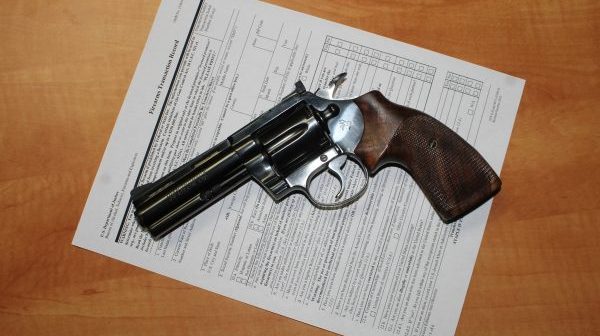
Newsweek is reporting that “Two potentially sweeping gun violence prevention bills were introduced to Congress” this week, but what the story didn’t say is that both measures appear to treat rights enumerated in the Constitution as privileges.
The first of these measures, according to the story, is the “Handgun Purchaser Licensing Act,” introduced in the Senate by anti-gun Maryland Democrat Sen Chris Van Hollen and in the House by Democrat Congressman Jamie Raskin, also of Maryland. Joining Van Hollen in the Senate are Democrats Richard Blumenthal and Chris Murphy, while the House version is joined by Johana Hayes., all from Connecticut.
This measure will “incentivize state and local governments to implement a requirement that would-be gun owners first obtain a license before making a purchase,” Newsweek reported.
Where does it say that a license should be required before someone can exercise a right protected by the Constitution? An interesting Supreme Court case, Murdock v. Pennsylvania, might be useful to study. It’s got nothing to do with the Second Amendment, but it does nix requiring a license to exercise a right.
The measure ostensibly is aimed at reducing violence by “screening potential gun buyers.” According to WAMU, researchers at Johns Hopkins University contend that requiring a license to purchase a handgun is a more effective way to prevent homicide and suicide than background checks. The story noted, “Just nine states and Washington, D.C., currently have licensing requirements for gun purchases. After Connecticut adopted its licensing law in 1995, gun homicides dropped by 40% and gun suicides dropped by 15% over 10 years. When Missouri repealed its law in 2007, firearm homicides increased by 17 to 27% through 2016.”
In a press release, Raskin declared, “Handgun licensing saves lives for the same reason drivers’ licensing saves lives. It takes the dangerous people out of our way as much as possible.”
Raskin appears to overlook the fact that keeping and bearing arms is a right specifically enshrined in the Second Amendment. Driving is a government-regulated privilege.
Besides, statistically it’s questionable whether licensing drivers saves lives. In 2017, according to the Department of Transportation’s National Highway Traffic Safety Administration, 37,133 people were killed in vehicle collisions.
That same year, according to data from the Centers for Disease Control and Prevention, there were 39,773 firearms-related deaths, of which 14,542 were homicides, 23,854 were suicides, 553 involved “legal intervention/operations of war” 486 were unintentional and 338 were “undetermined.” All of these numbers are considered “gun violence” by anti-gunners, but is that really a fair classification? Homicide is a crime, while suicide is an act of emotional despair.
There is something else, too. While the CDC offers a homicide statistic, it doesn’t concur with the FBI Uniform Crime Report for that year, which lists 10,982 firearm homicides out of the total 15,129 murders for the year.
The other measure, according to Newsweek, is the proposed 3D Printed Gun Safety Act, which would prohibit “the publication of digital instructions or code that would be used to print a firearm or complete a partially finished weapon.”
This might run afoul of the First Amendment, which was at the center of a legal action settled last year that involved the Texas-based Defense Distributed, a non-profit that got some support from the Second Amendment Foundation. The State Department tried to settle the case last year but was blocked by a court order, Newsweek noted, “but the non-profit was able to use a technical workaround to begin distributing digital copies of firearms blueprints.”
While it’s not clear if any 3D printed gun has ever been used in a crime, the issue for anti-gunners is that such firearms are allegedly untraceable and “often undetectable.”
The 3D gun “safety” legislation is sponsored by Congressman Ted Deutch and Sen. Ed Markey.